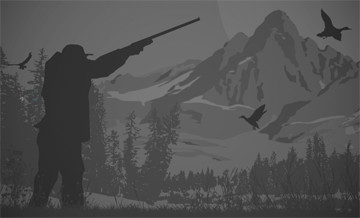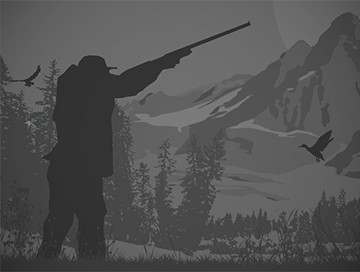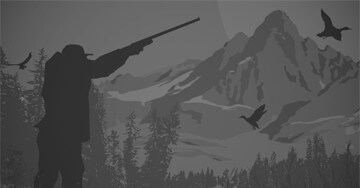Hunting in Cameroon
View 12 hunts View all hunts12 hunting trips from 5 outfitters starting from $8,319
Cameroon on map
About hunting in Cameroon
A medium-size country along the west coast of Africa, Cameroon features diverse terrain, a variety of ecosystems, and an abundance of wildlife. The southernmost part of the country is covered in thick rain forests that are home to bongo, dwarf forest buffalo, giant forest hog, western sitatunga, and several varieties of forest duikers. As you move northward, the forest gives way to a gallery forest/savanna ecosystem in the central part of the country, and true savanna in the far north. The northern half of the country holds Central African giant eland, western roan, western hartebeest, sing-sing waterbuck, Nigerian bohor reedbuck, harnessed bushbuck, western kob, red-flanked duiker, West African bush duiker, elephant, korrigum, and West African savanna buffalo. Animals are split into groups for hunting purposes, and your license allows you two animals from Group 1, which includes the most desirable species such as elephant, buffalo, eland, and bongo. Your license also allows you to take four animals from Group II, which includes various species of antelope and pigs.
What you need to know
-
1. Planning your trip
-
2. Upon arrival
-
3. Hunting
-
4. After the hunt
Planning your trip
Visas and Firearms Permits
All visitors to Cameroon are required to obtain a visa in advance from the Cameroon embassy, which takes at least seven days to process. You must submit your passport, two to four passport photos, a copy of your itinerary, proof of required vaccinations, a bank statement or letter of invitation, and the fee. You also need to secure your firearms permit in advance from the Cameroon embassy, which you can do at the same time you request your visa. For this form, you’ll need to submit a US Customs 4457 form for your firearm as well as a letter from your doctor attesting to your good health, and pay the fee.
For more details, check out applications for visas and firearms permits.
Health
Malaria prophylaxis is essential when traveling to Cameroon. Proof of yellow fever vaccination is also required, and in some cases a polio vaccination may also be required. Check with your doctor to make sure all other recommended vaccines are up to date. Cameroon has a hot, humid, tropical climate, and many tropical diseases are endemic, especially in the rain forest regions.
Upon arrival
Most international flights arrive in Douala from Paris or Brussels. Your outfitter’s representative should meet you at the airport and assist you in clearing your firearm. French is typically spoken in Cameroon, and euros are more widely accepted than U.S. dollars; be prepared with small tips in euros for those who assist you through the firearms-clearing process. You will then travel to your hunting area via a domestic flight, a charter flight, a vehicle, or any combination of the three.
Hunting
Cameroon’s hunting is conducted in large hunting blocks, and camps are semi-permanent with accommodations usually consisting of adobe buildings or thatched-roof huts.
Most hunting in Cameroon is extremely challenging, particularly hunts for bongo and eland. Eland hunting requires many miles of walking in intense heat, usually over a number of days. Bongo hunts also require a great deal of walking and take place in the rain forest, where the vegetation is extremely thick. Shots in the rain forest are usually at very close range. Most eland hunts take place between January and March, and bongo hunts are usually best in late April or early May.
Gear for safaris in the savanna area of the country is similar to what is needed in other areas of Africa, but be prepared for extremely hot weather. If you are hunting in the rain forest, you will need several extra changes of clothes and two pairs of boots, since clothing and boots take a long time to dry in the humid conditions.
After the hunt
Trophy preparation
Typically, animals are skinned at the safari headquarters and all skins are cleaned and salted; skulls and horns are cleaned and buried in salt. Because of the humid climate,, special care should be taken to keep skins and skulls clean and dry. Before leaving camp, it’s a good idea to ensure the skulls and skins are properly tagged with the hunter’s name and contact information. At the end of the season, trophies will be prepared for export and shipping.
Export permits
Be sure you have arranged with your outfitter for the required export permits, as well as any CITES permits that may be needed for exporting certain species. In addition, enhancement permits are now required for import of some animals into the USA. Many export and import requirements have undergone dramatic changes in recent years, so to ensure you have the most up-to-date information, it’s a good idea to use the services of an expediter or customs house that specializes in hunting trophies.
Price distribution
Interested in this destination? Create a subscription to get offers right to your inbox




